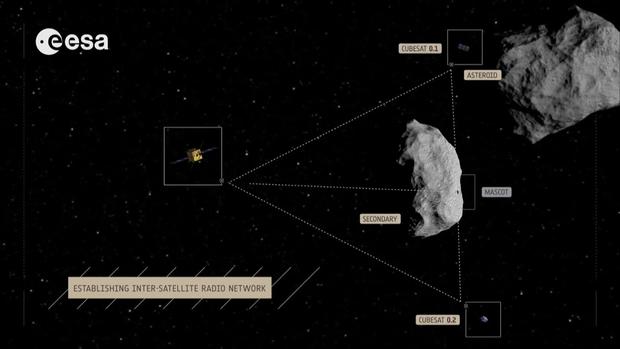How NASA plans to knock asteroids heading toward Earth off course
Since one of the biggest asteroids to strike Earth nearly 65 million years ago, our planet has been unarmed -- until now.
On the front lines of defending the planet is the newest technological advancement by NASA's Planetary Defense team: the Double Asteroid Redirection Test, otherwise known as DART.
DART's mission? To knock asteroids flying close to Earth off-course by striking them at a speed about nine times faster than a bullet.
NASA plans on testing the DART system on the moon of the asteroid Didymos. The satellite launches into space in 2020 with plans for impact in 2022.
"That's why we're doing this demonstration on the moon of an asteroid because we can change its orbit around Didymos much more easily and be able to measure the change we make much more easily," said Andy Rivkin, co-lead of the DART investigation team.
Small meteors hit Earth everyday, breaking up in the upper atmosphere and mostly going unnoticed. But several have been caught shooting across the sky.
The damage they can cause isn't just the stuff of fiction. In 1908 an asteroid flattened hundreds of square miles of forest in Siberia. In 2013 a meteor about 65 feet wide exploded over Chelyabinsk, Russia, injuring about 1,500 people and damaging thousands of buildings.
"There are no threatening asteroids that we know of but… the way that that probability works, we don't think that we're due, but it's not the sort of thing you can predict like that," Rivkin said.




